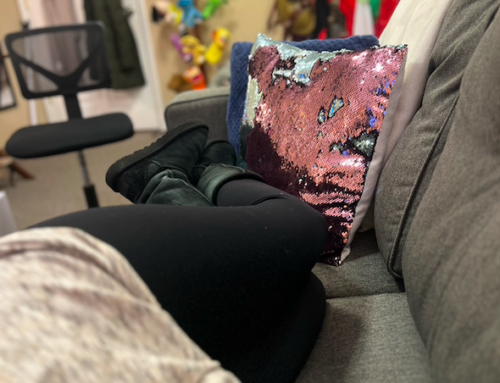Seasonal Affective Disorder, or SAD, is a form of depression that occurs with the changing seasons. SAD is also known as Seasonal Depression.
It is important to know that most people experience some reduction in energy levels and motivation as we move into winter, especially those of us that live up north. I’ve heard it suggested that humans have an instinct to go into hibernation: our bodies naturally want to eat more and move less to reserve energy to last us through the cold.
However, people that have struggled with Seasonal Affective Disorder can tell you that it is different from this more universal experience of wanting to slow down. SAD can disrupt your relationships, your work performance or grades, your self-esteem, and so much more.
If you have seasonal affective disorder, you have mood changes and symptoms of depression, including1:
-
- Sadness, feeling depressed most of the day, almost every day
- Anxiety
- Carbohydrate cravings and weight gain
- Extreme fatigue and lack of energy
- Feelings of hopelessness or worthlessness
- Trouble concentrating
- Feeling irritated or agitated
- Limbs (arms and legs) that feel heavy
- Loss of interest in usually pleasurable activities, including withdrawing from social activities
- Sleeping problems (usually oversleeping)
- Thoughts of death or suicide
Symptoms of SAD typically begin appearing during the autumn months as the weather begins to cool.
How to help yourself
As with all mental health conditions, it is important to rule out a medical cause. In particular, low Vitamin D levels have been found to correlate with the low energy and mood of SAD. I am not recommending that you – the reader – should start self medicating with Vitamin D supplements.
If you are experiencing new or worsening symptoms of depression, it is important to discuss this with your primary care provider or another qualified medical professional. They will discuss options for blood tests, behavioral changes, and other approaches that are tailored to your unique needs. This is especially important if your sleep patterns and appetite have changed, you turn to alcohol for comfort or relaxation, or you feel hopeless or think about suicide2.
Many individuals struggling with SAD have benefitted from therapy and have experienced relief from the negative thoughts and feelings associated with depression. The writers at KidsHealth® propose that therapy “can ease the isolation or loneliness that people with depression often feel. It can help people understand their condition, and learn what to do to prevent future bouts of seasonal depression3.”
The therapists here at Unwritten Endings are happy to help you navigate this upcoming winter, whether you have a history of SAD or just need someone to talk with. Please don’t hesitate to reach out!
Sources:
- https://my.clevelandclinic.org/health/diseases/9293-seasonal-depression
- https://www.mayoclinic.org/diseases-conditions/seasonal-affective-disorder/symptoms-causes/syc-20364651
- https://kidshealth.org/en/teens/sad.html







Leave A Comment